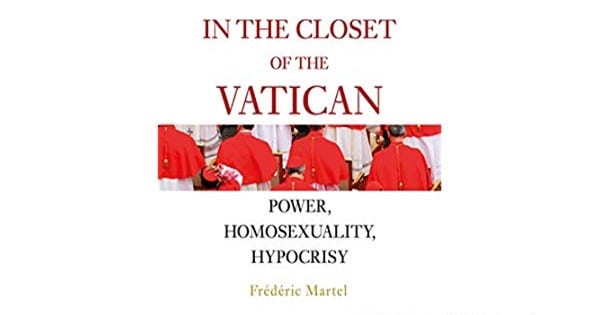
Would you rather be a noun or an adjective? That was the question a friend asked herself when she decided to be known as Nance instead of Nancy. “Why be an adjective,” she quipped, “when you can be a noun?” I laughed out loud! But hey, I am a writer and literature nerd, so thinking of myself as a part of speech tickled my funny bone. My immediate reaction was to agree with her – a noun is surely much grander and more important than its modifiers, like a Queen surrounded by adoring subjects. But then my mimetic theory antennae started to vibrate – why was the condition of “noun-ness” so attractive to Nance and me?
My first thought was that she, and I, were instantly associating being a noun with being the subject of a sentence in the active voice. In this construction, the noun is the actor, the prime mover, the one who initiates and around whom all the action revolves. A lofty role indeed! Adjectives play their part, of course, but they can only modify the subject, never quite reaching the coveted position of initiator of the action. In my years taking fiction writing classes, the active voice was clearly preferred over the passive voice, in which the action is performed upon the subject. Contemporary fiction seemed to be obsessed with constructing sentences in which the action is performed by the subject (active voice), not upon it.
After a time I became disillusioned with fiction writing. My lack of talent was becoming more apparent to me, of course, but I was also getting a bit peeved by the fanatical promotion of the active voice. Why this insistence on active over passive voice? To answer the question, let’s look at a dramatic example of the difference between active and passive voice:
Active – Nance saved the drowning child.
- Nance is the heroine of this drama; her saving action is emphasized by the active voice construction. The child is almost a prop, conveniently there as a foil to demonstrate the heroism that is part and parcel of Nance’s being.
Passive – The drowning child was saved by Nance.
- Nance is still the heroine, but the subject of the sentence is the child. The focus is less on Nance and more on the child, who received the help offered and so was saved. The emphasis is on the dire situation of the child more than on the nature of Nance’s heroic action.
Do you see how both sentences describe the same scene but from completely different perspectives? Why, I wondered, as a succession of writing teachers extolled the virtues of the active voice, was the perspective of the passive voice being rejected? Because in the passive voice, the subject of the sentence is acted upon by another. A passive subject defies the myth of American, action-oriented, individualism. The individual as a self-starter who acts upon his environment with strength of character and determined will is fully expressed by the active voice. The picture of the individual as someone who is acted upon that obtains via the passive voice is therefore banished from the world of fiction.
Which, I think, is what diminishes the power of much of contemporary fiction to reveal the truth to us about ourselves. Much more realistic is the perspective we find in the biblical narrative, of beings who are acted upon by God, who receive calls, admonitions, encouragements, punishments, laws, visitations, visions and salvation and so are shaped and molded into someone new. The bible also warns against idolatry, which is nothing other than receiving calls, admonitions, encouragements, punishments, laws, visitations, visions and salvation from someone or something other than God. We will be called into being by someone other than ourselves, the Bible tells us. The question is not if, but by whom.
I believe this denial of what James Alison calls our “secondariness” is at the heart of the modern plague of anxiety, depression and general ennui which hovers over so many of us. When we insist upon being a noun that is hell bent on initiating the action of our own lives, we fail to recognize the ways in which we are acted upon and constructed by others. We want so desperately to be somebody, we fail to see that “being somebody” is not something we do, but something that is given to us as a gift from God. To use fiction writing terms again, though we are the subject of our own lives, we are not the protagonist of our own stories. God is. We are the passive subject of a sentence in which God is the initiator of all that is, including us.
Undergoing this shift in perspective is the focus of James Alison’s course, Jesus the Forgiving Victim: Listening for the Unheard Voice. Allow me to end this brief reflection on so vast a subject by quoting from Alison’s discussion of the bush that burns but is not consumed. Do you remember the answer God gave when Moses asked for God’s name?
God said to Moses, “I AM WHO I AM.” This, then is the answer of answers, and at the same time, the ultimate non-answer. For the same God who is not in rivalry with anything that is… is refusing to be a “he” or an “it”. “I AM”, or “I WILL BE WHO I WILL BE” (which may well be a less misleading translation of a very mysterious phrase), is something that cannot be grasped, coming towards you, and the “not-being-able-to-be-grasped” is essential to what is going on. “I AM” turns out to be the real protagonist, the one who brings everything into being, and it is thus only in the degree to which anyone stops attempting to be the “I AM” in the face of God, trying to make God an “it” or a “he”, that that person, or that group will start themselves to receive their real “self”, their real but subsidiary “I am” as a group and as individual persons.
God is not a person, place or thing, not a noun at all, as grand as we imagine that to be. God, it seems, is more like a verb than anything we can hold in our hands or point to as being here or there. God is aliveness, energy, causality, creative power – God is that which acts upon us and brings us into being, the energy that allows us to become a noun. Yes, it is glorious to be a noun, but a noun who forgets that he or she is a created being, a creature and not the Creator, has lost touch with reality. To return to ourselves, we need only relax into the presence of I AM, and experience the joy of being acted upon by love.











